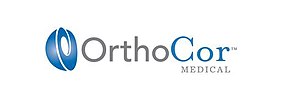This article has multiple issues. Please help improve it or discuss these issues on the talk page . (Learn how and when to remove these messages)
|
 | |
| Company type | Private |
|---|---|
| Industry | Medical Technology |
| Headquarters | Arden Hills, Minnesota |
Key people | Fariborz Boor Boor |
| Products | OrthoCor Active System |
| Website | www.orthocormedical.com |
OrthoCor Medical, Inc. is a privately owned medical device company based in Arden Hills, Minnesota. Founded in 2007, [1] OrthoCor develops drug-free, noninvasive, mobile medical devices aimed at alleviating pain and reducing edema.